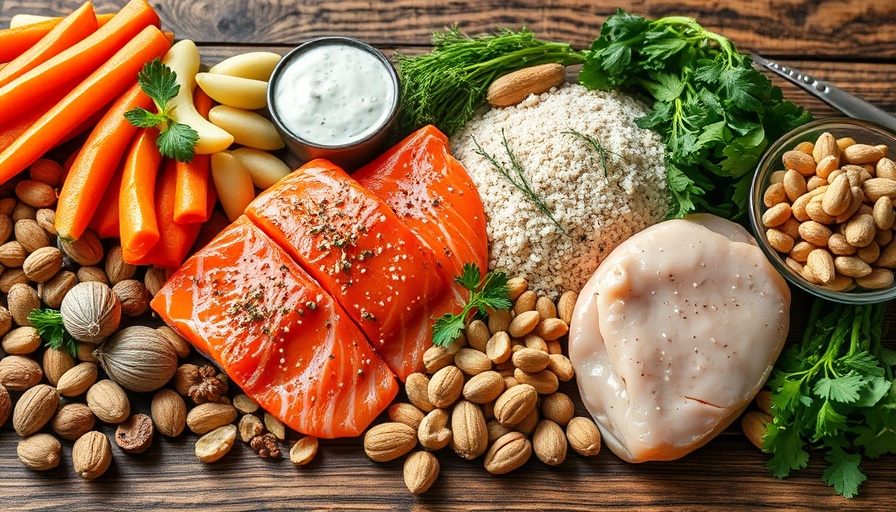
Muscle Gain: The Debate Over Protein Sources
When considering muscle gain, many enthusiasts divide themselves into two camps: omnivores who rely on animal proteins, and vegans who eschew meat for plant-based proteins. However, a recent study conducted by researchers at the University of Illinois at Urbana-Champaign reveals that this distinction may not be as critical to muscle building as previously thought. The study, which spanned nine days, examined how different protein sources impact muscle protein synthesis in conjunction with weight training, yielding surprising results.
The Research Landscape
Researchers posed three pivotal questions regarding muscle building: Does the type of protein—plant or animal—impact muscle gain? Does evenly distributing protein intake throughout the day matter? And, importantly, does a moderate daily protein intake influence these factors? Surprisingly, the answer to each was a resounding 'no.' Professor Nicholas Burd, who led the study, highlighted that past beliefs favored animal-based proteins for muscle-building benefits primarily based on short-term studies that examined responses from single meals rather than habitual diets.
Understanding Protein Requirements
The critical takeaway from Burd's research suggests that consuming a diet rich in varied, whole foods—whether vegan or not—holds significant promise for muscle gain. The traditional dogma that animal protein is superior doesn't hold up when considering an entire dietary context over time. The study notably addressed the common intake level of 1.1-1.2 grams of protein per kilogram of body weight, arguing that anything beyond this threshold doesn't significantly enhance muscle protein synthesis, challenging long-held beliefs about protein consumption.
Real-World Implications for Fitness Enthusiasts
For fitness enthusiasts and athletes alike, the implications of this research are profound. No longer must one feel pressure to choose animal protein sources to achieve optimal muscle gain. Instead, incorporating diverse plant-based proteins can be just as effective when paired with consistent weight training. This perspective is not just a win for vegans but also promotes greater inclusivity and flexibility in dietary choices among health-conscious individuals.
The Power of Habitual Diet Over Single Meals
Another critical aspect highlighted in this research is the importance of long-term dietary habits versus isolated meal plans. While previous studies focused on isolated feeding periods, Burd's work encourages individuals to think about their diets holistically. That means for those concerned about health and wellness, consistency in protein intake can lead to better muscle-building outcomes rather than fitness strategies centered purely around immediate protein sources or supplements.
Embracing a Varied Diet: The Key to Muscle Growth
In light of these findings, adopting a varied diet—encompassing both plant and animal sources if desired—could unlock a new realm of potential for muscle-building success. It highlights the clear message that it is not merely what you eat, but how you consume those nutrients within the context of your overall lifestyles, such as regularly engaging in weight training.
Future Directions in Muscle Protein Research
As Burd and his team urge further exploration in the field, the ongoing evolution of our understanding of nutrition and fitness will call for larger studies that include diverse populations and more varied diets over longer periods. This is essential, as it leads us closer to understanding optimal dietary strategies that promote health, endurance, and muscle gain irrespective of dietary preferences.
Your Journey to Optimal Muscle Health
The takeaways from this study push us toward embracing personal dietary choices while reinforcing consistent weight training as the foundation of muscle growth. Whether you're vegan, vegetarian, or a dedicated omnivore, what matters most is a balanced approach that focuses on whole foods consumed regularly. Consider consulting a nutritionist or exploring local health and wellness centers to tailor a plan that best suits your individual health and wellness goals.
Are you ready to embrace a more well-rounded approach to your fitness and nutrition? Explore the benefits of natural foods and holistic health approaches today!
 Add Row
Add Row  Add
Add 




 Add Row
Add Row  Add
Add 


Write A Comment